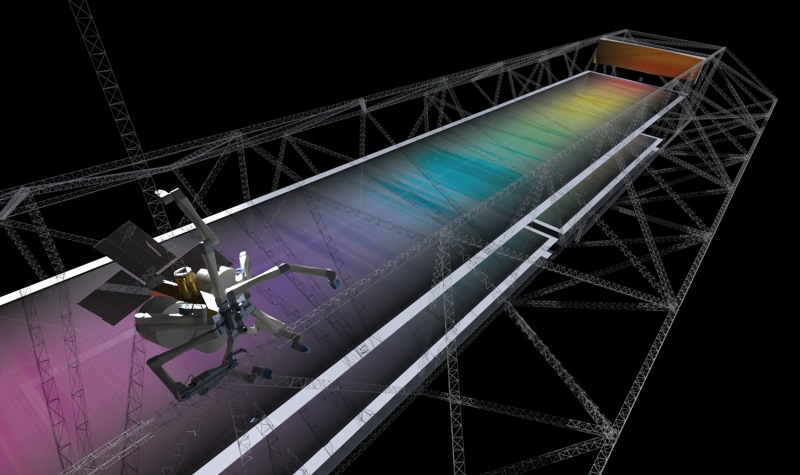My last three posts have been about a company called Tethers Unlimited and their technologies for space exploration and exploitation. Today's post will be a final look at exciting developments at Tethers Unlimited in the area of building structures in space.
Currently, the size of structures that can be sent into space is limited by the space inside the payload stage of our heaviest lifters. It is possible to fold up a payload and unfold it in orbit but size is still severely constrained. Tethers Unlimited is working on going beyond the limitations of payload space for space structures.
From Wikipedia: "In engineering, a truss is a structure that 'consists of two-force members only, where the members are organized so that the assemblage as a whole behaves as a single object'. A 'two-force member' is a structural component where force is applied to only two points." Tethers Unlimited is developing systems for constructing and deploying trusses in space. The struts for the truss are made from a spool of carbon fiber, a very strong and light material. Tethers Unlimited has developed a system that can assemble and extrude a straight section of truss made from fiber.
Once a section of truss has been created, then it will be necessary to attach it to other sections of truss as well as satellites, space craft and space stations. This further stage of construction can be done by human beings in space suites but it would be better to have some sort of robotic system that could move around on the structure and attach new sections where needed. Tethers Unlimited are working on something they call SpiderFab. They did not set out to create a robot that looks like a spider but found that four limbs for mobility and four limbs for manipulation were a good configuration and just happened to match the eight limbs of spiders. The SpiderFab also carries a "spinneret" in the form of a spool of carbon fiber.
With the Tethers Unlimited truss construction system, big structures can be built in space such as solar arrays to supply clean energy to Earth stations. Another application will be to create "real estate" in orbit. Now, when a satellite is sent up to geosynchronous orbit, it has to carry its own platform. If a big truss structure was created in geosynchronous orbit over a particularly useful location such as over a major urban center , then cheaper and less complex satellites could be launched and their payloads attached to the truss structure.
Further in the future, when asteroids are being mined, it is possible that basalt from an asteroid could be turned into a fiber that could be used to construct space trusses. This would mean that carbon fiber would not have to be sent up to orbit for uses as a construction material.
Tethers Unlimited is an innovative company that is at the forefront of creation of tools, systems and materials for exploring and exploiting space.
SpiderFab (Source: Tethers Unlimited)
